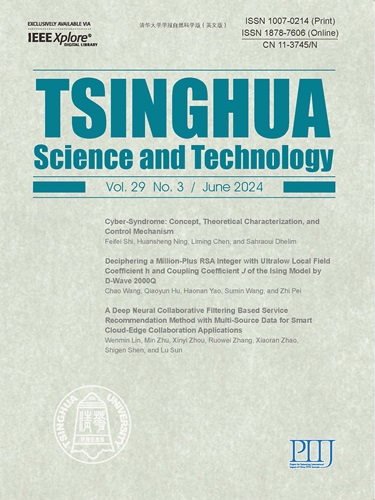Blockchain-Driven Secure Data Sharing Framework for Edge Computing Networks
IF 3.5
1区 计算机科学
Q1 Multidisciplinary
引用次数: 0
Abstract
This study examines secure and effective data sharing methods for edge computing networks. Traditional methods of sharing data at the edge have issues with security, speed, and consensus. The goal is to develop a Blockchain-based Secure Data Sharing Framework (BSDSF) capable of improving data integrity, latency, and overall network efficiency for edge-cloud computing applications. BSDSF proposes using blockchain technology with Byzantine Fault Tolerance (BFT) and smart contract-based validation as a new method of secure data sharing. It has a two-tiered consensus protocol to meet the needs of edge computing, which requires instantaneous responses. BSDSF employs Byzantine fault tolerance to deal with errors and protect against attacks. Smart contracts automate validation and consensus operations, while edge computing processes data at the attack site. Node validation and failure detection methods monitor network quality and dependability, while system security ensures secure communication between nodes. BSDSF is an important step toward digital freedom and trust by protecting security and improving transaction reliability. The framework demonstrates a reduction in transaction latency by up to 30% and an increase in throughput by 25% compared to traditional edge computing models, positioning BSDSF as a pivotal solution for fostering digital freedom and trust in edge computing environments.边缘计算网络中区块链驱动的安全数据共享框架
本研究探讨边缘计算网络安全有效的数据共享方法。在边缘共享数据的传统方法在安全性、速度和共识方面存在问题。目标是开发一个基于区块链的安全数据共享框架(BSDSF),能够改善边缘云计算应用程序的数据完整性、延迟和整体网络效率。BSDSF提出使用区块链技术与拜占庭容错(BFT)和基于智能合约的验证作为安全数据共享的新方法。它具有两层共识协议,以满足边缘计算的需求,需要即时响应。BSDSF采用拜占庭式容错来处理错误和防止攻击。智能合约自动化验证和共识操作,而边缘计算在攻击站点处理数据。节点验证和故障检测方法监控网络质量和可靠性,而系统安全性确保节点之间的安全通信。BSDSF通过保护安全性和提高交易可靠性,是迈向数字自由和信任的重要一步。与传统的边缘计算模型相比,该框架将事务延迟减少了30%,吞吐量增加了25%,将BSDSF定位为在边缘计算环境中促进数字自由和信任的关键解决方案。
本文章由计算机程序翻译,如有差异,请以英文原文为准。
求助全文
约1分钟内获得全文
求助全文
来源期刊

Tsinghua Science and Technology
COMPUTER SCIENCE, INFORMATION SYSTEMSCOMPU-COMPUTER SCIENCE, SOFTWARE ENGINEERING
CiteScore
10.20
自引率
10.60%
发文量
2340
期刊介绍:
Tsinghua Science and Technology (Tsinghua Sci Technol) started publication in 1996. It is an international academic journal sponsored by Tsinghua University and is published bimonthly. This journal aims at presenting the up-to-date scientific achievements in computer science, electronic engineering, and other IT fields. Contributions all over the world are welcome.
 求助内容:
求助内容: 应助结果提醒方式:
应助结果提醒方式:


